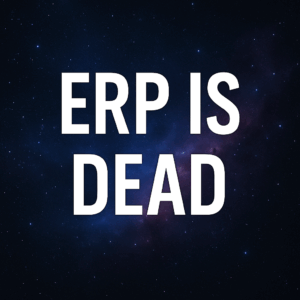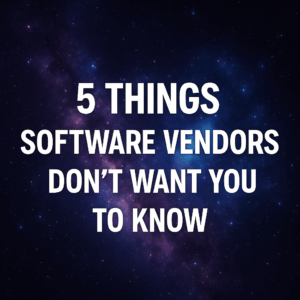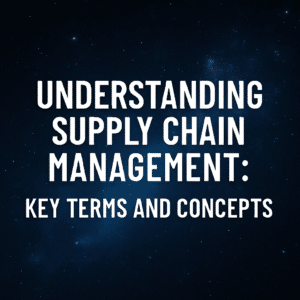When evaluating potential ERP software or other enterprise technologies, project teams typically turn to the usual industry analysts and reports. Analyst firms such as Gartner, Forrester, and others will frequently publish reports and analysis of various software solutions in a variety of verticals. Gartner’s ERP software magic quadrant is an example of a common reference point for those researching and evaluating potential ERP systems.
Table of Contents
ToggleProblems with ERP software magic quadrants and other industry reports
Though these are common reference points for organizations about to embark on an ERP selection (and especially for vendor sales reps touting the excellence of their products), there is a major problem with them: they are severely flawed. These reports are commissioned by the software vendors themselves. In other words, it is a pay-to-play model. The business model is a great one for the industry analysts, but it doesn’t necessarily reflect the needs of organizations about to make very big decisions regarding their enterprise technologies for the future.

There is another problem: they are extremely vague and hard to make sense of. Criteria such as “completeness of vision” and “ability to execute” – two common axes in Gartner’s magic quadrants – aren’t of much help for a company about to make one of the biggest capital investment decisions in their history. They also don’t take into account the most important criteria that any company may have.
Since this and other industry reports are typically commissioned and paid for by vendors, one has to wonder: 1) how objective are these analyses, and 2) how relevant are they to your organization?
Alternatives to the ERP software magic quadrant
Rather than relying on generic, vendor-sponsored magic quadrants and other industry analysis for your software selection, it is more effective to define your own ERP magic quadrant to find the best system for you – based on your most important criteria. Each company has different needs, but ultimately,they can be narrowed down to several common criteria.
Some may be measurable, but some may be more difficult to measure. Instead of generic, vendor-sponsored analysis, these measures should be the key criteria used to drive your decision.
For example, below are some of the common criteria we help our clients navigate:
- Flexibility
- Cloud maturity
- Alignment with operational needs
- Cultural fit
- Estimated implementation cost
- Business risk
- Business benefits
These criteria are often used in addition to ERP business requirements and other considerations.
How to create an ERP quadrant that fits your needs
Once these criteria have been defined, they can be used to create a number of magic quadrants for your own business and needs. For example, if you want to evaluate your software options in the context of business risk and flexibility, you could create your own quadrant to visualize how the products stack up. Or, if total cost and business benefits are important, you might create a quadrant with those criteria in mind.
This video explains the process of creating an ERP quadrant tailored for your specific needs and priorities in more detail, along with some specific examples:

How to measure criteria for your ERP quadrant
Since some of the criteria you may be considering are measurable, you will want to do what you can to get an objective measure of how each ERP software under consideration stacks up. The key is to do so in a way that is free from vendor bias and sales spin. This is an important way to navigate the ERP software sales process.
For example, you can use your quantitative scoring models from your own internal team based on their observations of actual functionality demonstrated by the vendors. (Be sure these are based on demos of the actual software rather than PowerPoint screen shots and sales materials). Another potential data point is Third Stage’s vendor database, which is an analytical tool based on objective and quantitative comparisons of different ERP software solutions against thousands of unique business requirements.
There are other evaluation criteria that are harder to measure. For example, things like “flexibility” and “cloud maturity” are hard to gauge – especially if you don’t regularly work with and implement various ERP systems in the market. Not knowing how to objectively assess these and other criteria can lead to analysis paralysis in the ERP evaluation process. This is where independent and technology-agnostic expertise like that of our team at Third Stage can be invaluable.
Key takeaways
The ERP evaluation process can be overwhelming, with very few unbiased resources at your disposal. But be sure that you conduct an evaluation that is free of vendor and industry analyst while focusing on the objective criteria that are most beneficial for you. Slick reports and models like the ERP magic quadrant may look good on paper, but don’t be fooled into letting these types of collateral influence one of the most important business decisions you will ever make.
This is where our team at Third Stage can help. Please feel free to contact me if you would like to arrange an informal discussion regarding your ERP evaluation or implementation. My team and I are happy to be in informal sounding board for your ERP implementation!





